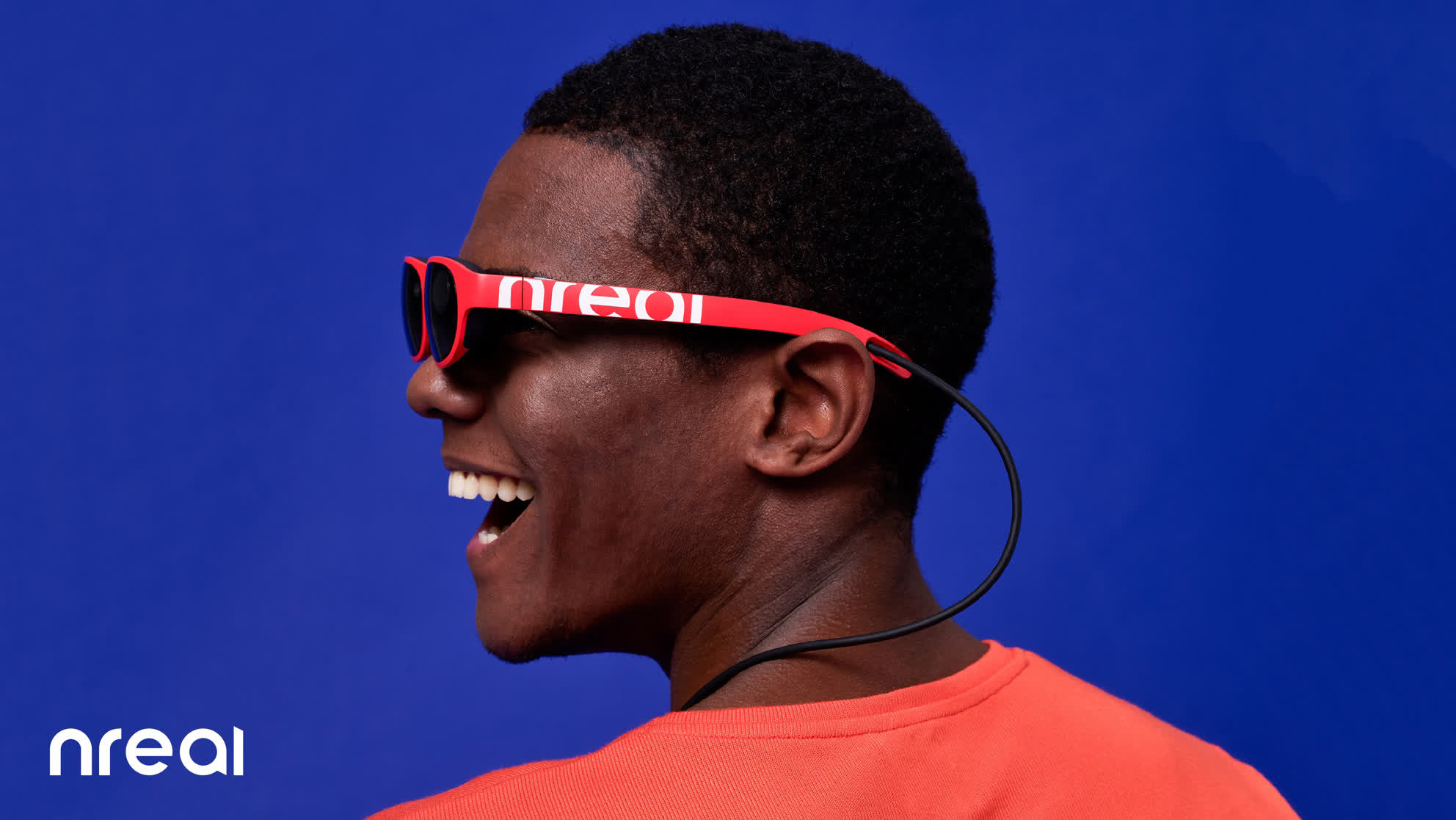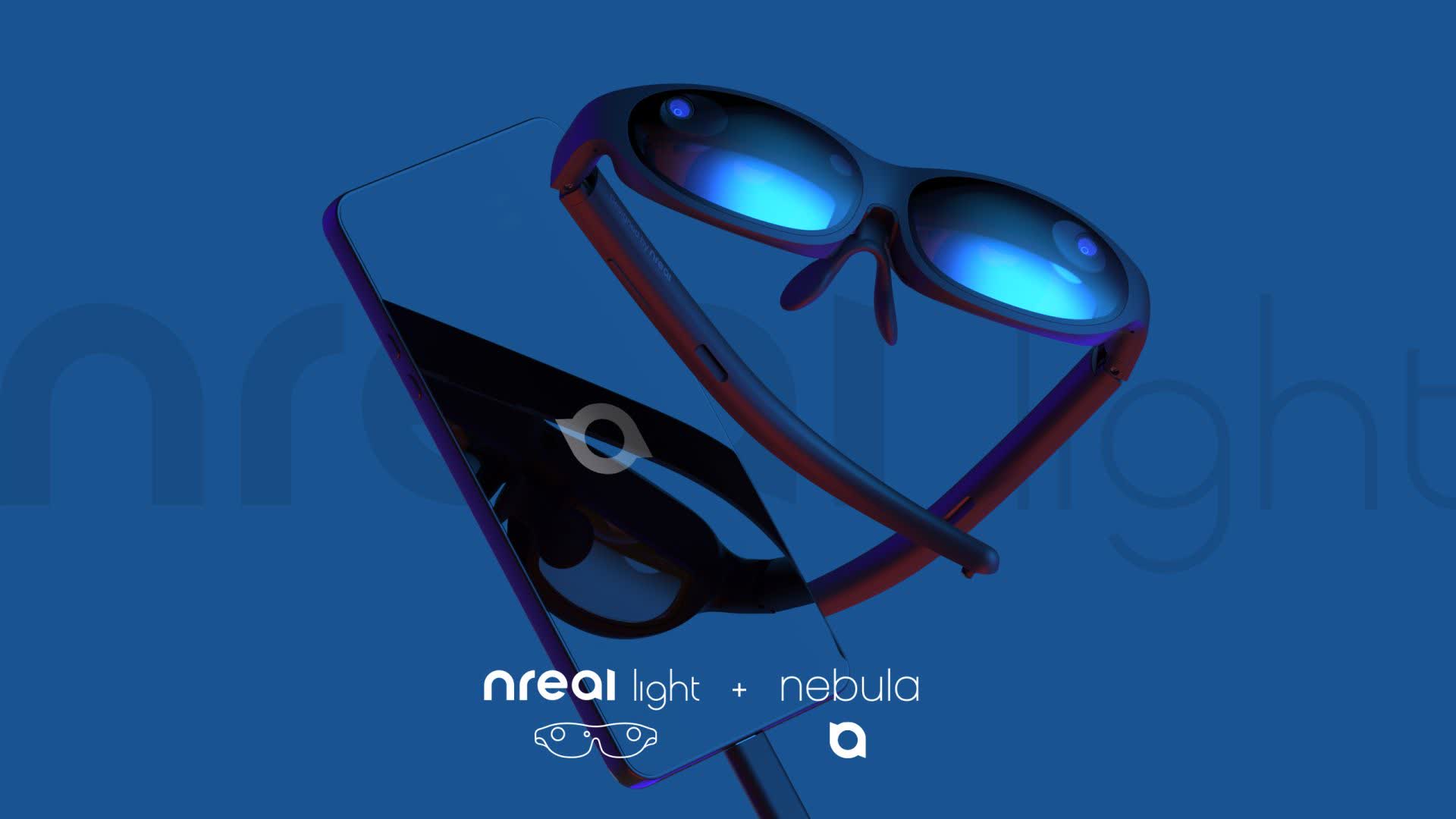Something to look forward to: Augmented reality hasn't really taken off, partly because of the high asking prices of AR glasses but also due to limitations like the need for tethering to another device. Nreal is one of the companies creating more affordable AR solutions, which are slowly becoming available through strategic partnerships with telecom companies.
Augmented reality has generated its fair share of hype over the last few years, but it still remains an expensive dream that can only be affordable in its least attractive form – on smartphones and tablets, as opposed to full-blown AR headsets like Magic Leap One and Microsoft HoloLens 2. And even those are not ideal solutions despite the mountains of research and development that went into creating them, not to mention the limited use cases.
Companies like Intel and Bose have already given up on augmented reality, after realizing that it's quite hard to convince consumers to buy a cheap implementation that can barely replace their smartphones. Others are trying different approaches to introduce more useful applications of the tech, such as capturing bits of the real world to introduce into a digital document.
In the case of Nreal, the company is marching along after winning a legal battle against Magic Leap over alleged stolen trade secrets. Nreal began selling its Light mixed reality glasses in South Korea earlier this year, which involved a partnership with LG and KDDI.

Today, the company announced it will expand the availability of the new headset to Europe starting Spring 2021. To that end, Nreal has partnered with Vodafone and will use its retail channels, while the latter plans on offering it alongside its gigabit 5G data plans.
The glasses weigh a bit over 100 grams and are powered by Qualcomm's Snapdragon XR2. They still need to be connected via USB-C to an Android phone that sports a Snapdragon 855 SoC at a minimum, which can be seen as a disadvantage. Otherwise, there's support for 6DoF 3D tracking, and the image overlay is sent to the glasses at a resolution of 1080p per eye and a refresh rate of 60 Hz.
For total immersion, you also get a VR cover that blocks the view of the outside world, but you're limited to a 52-degree diagonal field.
The way Nreal Light glasses work is relatively simple: they project the apps and games on your smartphone in front of you and allow you to interact with the UI and 3D objects with ease. As of writing, the glasses use your smartphone for gesture input, but the company is working on hand tracking for a future software update.
Vodafone says it's working on several mixed reality apps to take advantage of the Nreal Light which include "sports apps that overlay stats and graphics during live games, advanced multiplayer games blending live and virtual environments in real-time, navigation and tour guides, fitness coaching, interior design and interactive, immersive education," as well as virtual showrooms and collaboration tools that range from design and engineering to manufacturing and the assembly processes.
In terms of pricing, they have yet to reveal details, but judging by the previous launch in South Korea, they Nreal Light should retail for around €600 ($729). There's no word on US availability yet, but with companies like Verizon already selling pairs from other makers that cost north of $1,000, it's probably only a matter of time.
